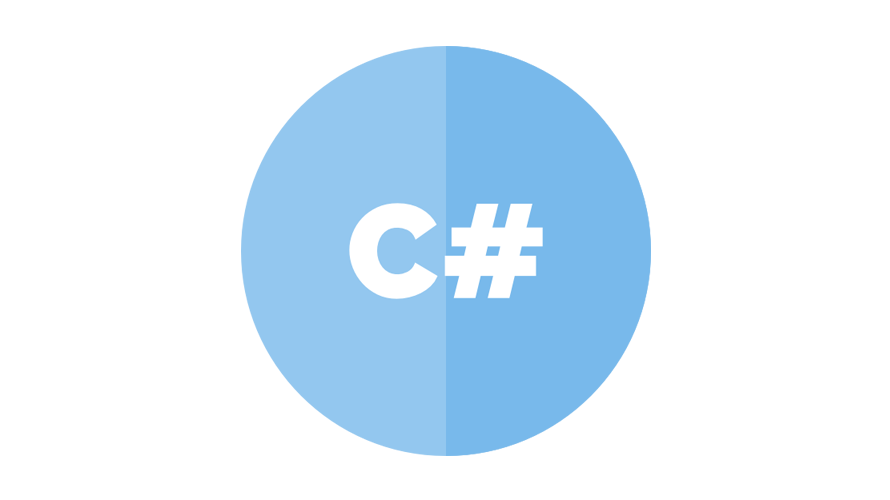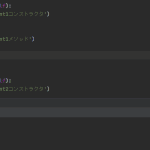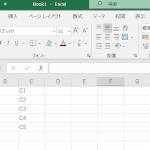C# 文字列の文字数カウントで「foreach」と「Linq」と「Replace」と「Split」と「Regex」のパフォーマンスを計測して比較する

C#で、文字列の文字数カウント処理を「foreach」と「Linq」と「Replace」と「Split」と「Regex」のそれぞれで実行したパフォーマンスを計測して比較するコードと結果を記述してます。
環境
- OS windows11 pro 64bit
- Microsoft Visual Studio Community 2022 Version 17.2.3
パフォーマンス計測
「System.Diagnostics.Stopwatch」を使用して、文字列の文字数カウント処理で「foreach」と「Linq」と「Replace」と「Split」と「Regex」を100万回実行して、計測した結果を比較してみます。
using System;
using System.Text.RegularExpressions;
namespace ConsoleApp1
{
internal class Program
{
private const int n = 1_000_000;
static void Main(string[] args)
{
string str = "mebee";
int count = 0;
var time = new System.Diagnostics.Stopwatch();
// 計測開始
time.Start();
for (int i = 0; i < n; i++)
{
foreach (char c in str)
{
if (c == 'e')
{
count++;
}
}
count = 0;
}
time.Stop();
System.Diagnostics.Debug.WriteLine($"foreach : {time.ElapsedMilliseconds}ms");
// 計測開始
time.Reset(); // リセット
time.Start();
for (int i = 0; i < n; i++)
{
count = str.Count(v => v == 'e');
count = 0;
}
time.Stop();
System.Diagnostics.Debug.WriteLine($"Linq : {time.ElapsedMilliseconds}ms");
// 計測開始
time.Reset(); // リセット
time.Start();
for (int i = 0; i < n; i++)
{
count = str.Where(x => (x == 'e')).Count();
count = 0;
}
time.Stop();
System.Diagnostics.Debug.WriteLine($"Linq Where : {time.ElapsedMilliseconds}ms");
// 計測開始
time.Reset(); // リセット
time.Start();
for (int i = 0; i < n; i++)
{
count = str.Length - str.Replace("e".ToString(), "").Length;
count = 0;
}
time.Stop();
System.Diagnostics.Debug.WriteLine($"Replace : {time.ElapsedMilliseconds}ms");
// 計測開始
time.Reset(); // リセット
time.Start();
for (int i = 0; i < n; i++)
{
count = str.Split('e').Length - 1;
count = 0;
}
time.Stop();
System.Diagnostics.Debug.WriteLine($"Split : {time.ElapsedMilliseconds}ms");
// 計測開始
time.Reset(); // リセット
time.Start();
for (int i = 0; i < n; i++)
{
count = Regex.Matches(str, 'e'.ToString()).Count;
count = 0;
}
time.Stop();
System.Diagnostics.Debug.WriteLine($"Regex : {time.ElapsedMilliseconds}ms");
}
}
}実行結果をみると「foreach」を使用した方が、速そうです。
【1回目】
foreach : 32ms
Linq : 65ms
Linq Where : 120ms
Replace : 69ms
Split : 93ms
egex : 1125ms
【2回目】
foreach : 37ms
Linq : 68ms
Linq Where : 120ms
Replace : 66ms
Split : 101ms
Regex : 1063ms
【3回目】
foreach : 30ms
Linq : 73ms
Linq Where : 109ms
Replace : 74ms
Split : 81ms
Regex : 1152ms-
前の記事

Linux ファイルの中を空にする 2022.08.19
-
次の記事

PostgreSQL 文字列を1文字ずつ置換する 2022.08.19










コメントを書く